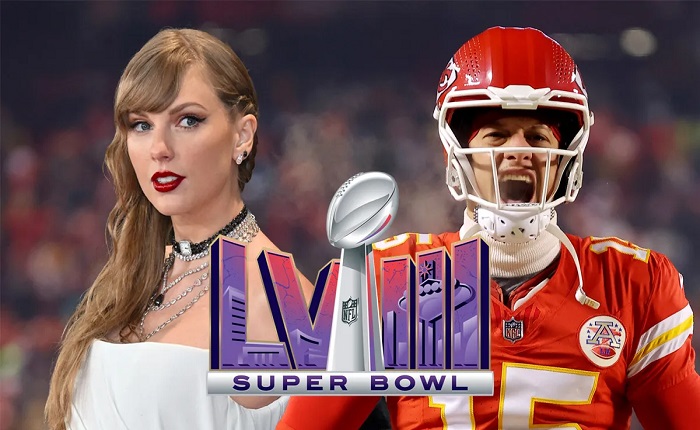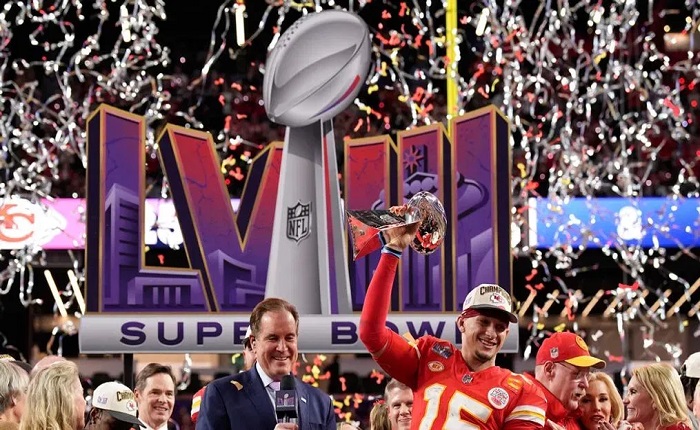Super Bowl Time: Everything You Need to Know About the Biggest Event in Sports

Introduction
Super Bowl time is one of the most anticipated sporting events globally, attracting millions of viewers every year. Held annually on the first Sunday in February, Super Bowl time is not just about football but also a cultural phenomenon. From iconic halftime performances to unforgettable commercials, Super Bowl time has grown into much more than just a championship game—it’s an American tradition celebrated worldwide.
The History of Super Bowl Time
Understanding the history of Super Bowl time provides insight into how it became the cultural behemoth it is today. The first Super Bowl was played in 1967, with the Green Bay Packers defeating the Kansas City Chiefs. Super Bowl time has since evolved, featuring legendary teams, unforgettable games, and moments etched into sports history. From its humble beginnings, Super Bowl time has grown into a multi-billion-dollar event that captivates both hardcore sports fans and casual viewers alike.
When Is Super Bowl Time?
Super Bowl time is traditionally scheduled for the first Sunday in February. This placement ensures that the game doesn’t clash with other major sporting events, giving it a prime position in the sports calendar. Super Bowl time marks the culmination of the National Football League (NFL) season, where the champions of the American Football Conference (AFC) and the National Football Conference (NFC) battle it out for the coveted Vince Lombardi Trophy.
How the Super Bowl Time is Decided
The exact scheduling of Super Bowl time is determined by the NFL based on the regular-season calendar. With the league expanding to a 17-game season, Super Bowl time has shifted slightly in recent years but remains a February fixture. Super Bowl time is carefully chosen to maximize viewership, giving fans ample time to enjoy the game, the halftime show, and the surrounding festivities.
Super Bowl Time: Eastern vs. Pacific Time Zones
One of the questions people often ask is what time the Super Bowl starts across different time zones. Super Bowl time is usually set for 6:30 PM Eastern Standard Time (EST), which translates to 3:30 PM Pacific Standard Time (PST). The Super Bowl time scheduling ensures that fans across the United States and around the globe can easily tune in without missing the action.
Super Bowl Time: International Viewership
While Super Bowl time is primarily based on U.S. time zones, its global appeal means that millions of fans from around the world tune in, often at odd hours depending on their location. Super Bowl time in countries like the UK, Australia, and Japan can mean waking up early or staying up late. Regardless of time zone differences, Super Bowl time brings fans together to experience one of the most exciting sporting events of the year.
Super Bowl Time and Halftime Show: A Cultural Phenomenon
One of the highlights of Super Bowl time is undoubtedly the halftime show. Over the years, Super Bowl time has hosted some of the most legendary performances in music history. From Michael Jackson’s iconic show in 1993 to Beyoncé and Shakira’s unforgettable acts, the halftime show has become a must-see event, elevating Super Bowl time beyond sports and into the realm of entertainment history.
Commercials and Super Bowl Time
In addition to the game and halftime show, commercials play a significant role during Super Bowl time. Many companies debut their most creative and expensive advertisements during Super Bowl time, knowing they have the attention of millions. Some ads become as memorable as the game itself, making Super Bowl time a platform for brand storytelling and creativity. Companies pay millions for a 30-second slot during Super Bowl time, reflecting the event’s massive reach and influence.
The Best Ways to Watch Super Bowl Time
Super Bowl time can be enjoyed in various ways, whether you’re watching at home with family and friends, attending a local viewing party, or catching the game at a sports bar. Thanks to modern streaming platforms, Super Bowl time is also available online, allowing fans to watch on their smartphones, tablets, or computers. Whether you’re watching on cable or streaming, Super Bowl time is accessible to a global audience, ensuring everyone can enjoy the excitement.
Super Bowl Time and Betting
Betting is a major aspect of Super Bowl time, with millions of dollars wagered on everything from the game’s outcome to prop bets, including the length of the national anthem and the coin toss. Super Bowl time attracts both seasoned gamblers and casual bettors, adding another layer of excitement to the event. Online sportsbooks see a surge in activity during Super Bowl time, as fans place bets in hopes of winning big while enjoying the game.
Super Bowl Time: Ticket Prices and Attending the Game
Attending Super Bowl time in person is a dream for many fans, but it comes with a hefty price tag. Super Bowl tickets often sell for thousands of dollars, with prices varying depending on seat location and the teams playing. The demand for attending Super Bowl time live is immense, with fans willing to spend significant amounts to be part of this iconic event. Super Bowl time at the stadium offers an unparalleled experience, with fans immersed in the energy and excitement of the big game.
The Role of Celebrities During Super Bowl Time

Celebrities play a significant role in Super Bowl time, both on and off the field. From celebrity appearances in commercials to star-studded Super Bowl parties, Hollywood and the sports world come together during Super Bowl time. Famous faces are often spotted in the crowd, further enhancing the spectacle. The intersection of sports and entertainment makes Super Bowl time a unique event where everyone, from athletes to actors, is eager to participate.
Memorable Moments in Super Bowl Time History
Super Bowl time has produced some of the most memorable moments in sports history. From Tom Brady’s record-breaking performances to dramatic last-minute touchdowns, Super Bowl time is often filled with unforgettable highlights. Iconic moments like David Tyree’s “helmet catch” or Malcolm Butler’s game-winning interception have cemented Super Bowl time as a stage for legendary performances. Each year, fans look forward to what new moments Super Bowl time will add to the rich history of the game.
Super Bowl Time Traditions
Super Bowl time is not just about the game—it’s also about the traditions that surround it. Super Bowl parties are a staple of the event, with fans gathering to enjoy food, drinks, and the company of friends and family. Traditional Super Bowl foods like chicken wings, nachos, and pizza are as much a part of Super Bowl time as the game itself. Super Bowl time also brings special events like the Puppy Bowl and the airing of new movie trailers, making it a full-day experience.
How Super Bowl Time Impacts the Economy
The economic impact of Super Bowl time is immense, with billions of dollars generated from advertisements, ticket sales, merchandise, and tourism. Super Bowl time boosts local economies, particularly in the host city, as fans travel from all over to attend the game. Hotels, restaurants, and businesses benefit from the influx of visitors, making Super Bowl time not just a sports event but a major economic driver.
Super Bowl Time and Social Media
Super Bowl time has become a massive event on social media, with millions of people posting their reactions to the game, commercials, and halftime show. Platforms like Twitter, Instagram, and Facebook light up during Super Bowl time, allowing fans to share their experiences and opinions in real-time. The use of hashtags like #SuperBowlTime and live-tweeting has become a new way for fans to engage with the event, making Super Bowl time a social media phenomenon as well.
Super Bowl Time: The Halftime Show Controversies
Over the years, Super Bowl time has seen its fair share of controversies, particularly surrounding the halftime show. From wardrobe malfunctions to politically charged performances, Super Bowl time has sparked debates and discussions that extend beyond sports. While these controversies occasionally overshadow the game itself, they also contribute to the broader cultural conversation that surrounds Super Bowl time each year.
The Future of Super Bowl Time
As Super Bowl time continues to grow in popularity, there are many exciting possibilities for the future. With advancements in technology, fans can expect even more immersive viewing experiences, including virtual reality broadcasts of Super Bowl time. Additionally, as the NFL expands its reach internationally, we may see Super Bowl time held in locations outside the United States. Whatever the future holds, one thing is certain: Super Bowl time will remain a cultural and sporting juggernaut for years to come.
Conclusion
Super Bowl time is much more than just a football game—it’s a global event that unites people across different cultures, backgrounds, and time zones. From the thrilling competition on the field to the star-studded halftime show and commercials, Super Bowl time has something for everyone. Its rich history, cultural impact, and the traditions it fosters make Super Bowl time a uniquely American spectacle with universal appeal. Whether you’re a die-hard football fan or just tuning in for the halftime show, Super Bowl time is an event that captures the imagination of millions and continues to grow in importance each year.
FAQs
1. What time does the Super Bowl typically start?
Super Bowl time is usually scheduled for 6:30 PM Eastern Standard Time (EST), though it can vary slightly depending on the year. Make sure to check the official schedule for the exact Super Bowl time.
2. Why is Super Bowl time always in February?
Super Bowl time is in February to align with the NFL’s season schedule, which ends after the playoffs in January. February offers a clear spot for Super Bowl time, avoiding conflicts with other major sporting events.





